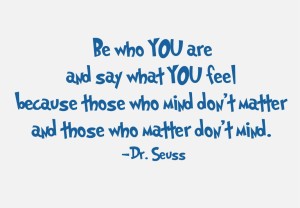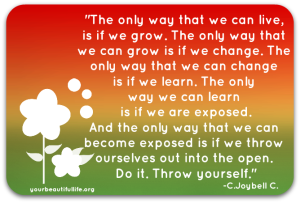One of the things that we’re learning in my leadership class is the concept of “stay.” Stay means having something that it’s important to you (your “stake”) and sticking with it through the highs and lows. Through the uncertainty and difficulty. It means keeping your focus when everyone around you knowingly or unknowingly seeks to divert you.
I’ve found the concept of “stay” useful in my runs. Yesterday, for example, I was only a half mile into my planned four mile run and I wanted to stop. But I was determined not to quit. I reminded myself that the first mile is the hardest, and told myself to stay with it. By Mile 2 I was feeling great. Then I hit another low just before the three-mile mark. It was hotter than I expected, I was getting tired. I wanted to walk the rest of the way home. “Stay,” I told myself again. I slowed a bit, I tinkered with my breathing rate, adjusted my gait, and was back in the groove for the last mile.
“Stay” also comes in handy for the final miles of a long run. For sticking with a training schedule, and yes, in those final 6.2 miles of a marathon.
What tricks do you use to “stay” when the going gets tough?




